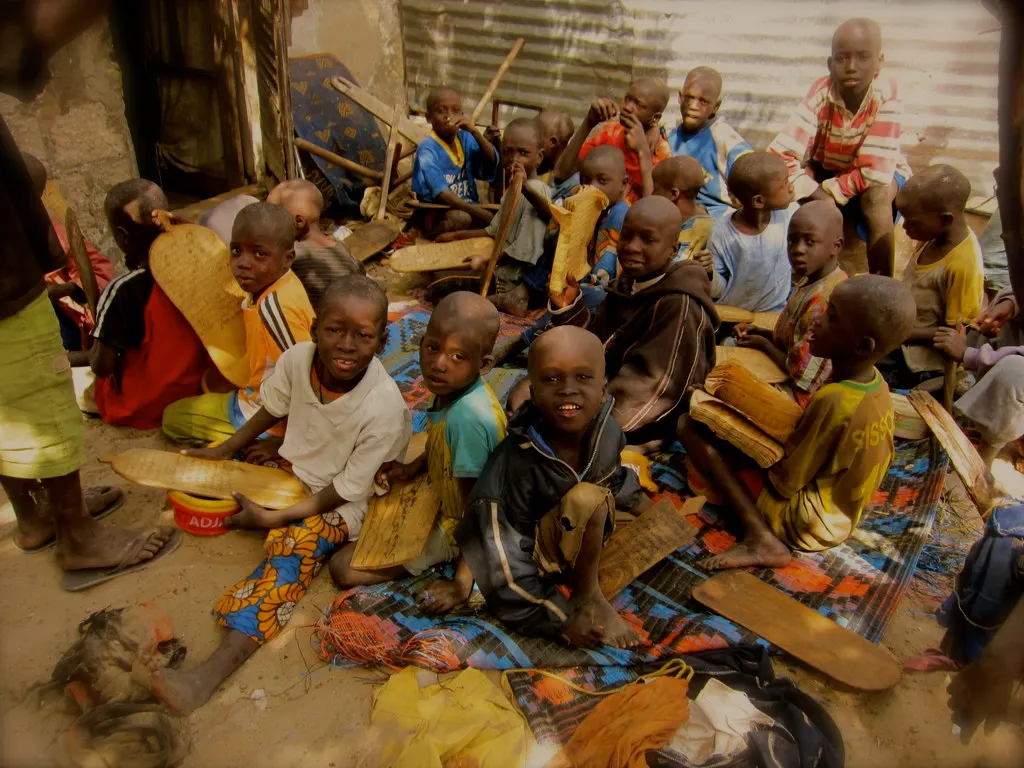By Red Black and Green Media
Pan African News Blog
August 17, 2025
Introduction
Senegal, a country celebrated for its rich cultural heritage and democratic stability, faces a dark and pervasive crisis: the sexual exploitation of children. From forced begging in Quranic schools (daaras) to sex trafficking in mining regions like Kédougou, thousands of Senegalese children endure unimaginable abuse. Yet, amid this humanitarian emergency, political and religious leaders often divert attention by scapegoating LGBTQ+ communities, framing homosexuality as a greater moral threat than the systemic sexual violence against minors.
This article examines the root causes of child sexual exploitation in Senegal, its devastating consequences, and how the criminalization of homosexuality distracts from—and even exacerbates—the real crisis.
The Scope of the Problem
1. Child Sex Trafficking in Kédougou
In southeastern Senegal, the gold mining region of Kédougou has become a hotspot for child sex trafficking. Girls as young as 12 are lured from neighboring countries like Nigeria under false promises of work, only to be forced into prostitution. Many arrive with falsified identity documents, masking their true ages .
- Recruitment Tactics: Traffickers exploit poverty, promising families a better future for their daughters. Some girls are aware they will engage in sex work, while others are deceived until arrival .
- Exploitation Cycle: Victims are “trained” for commercial sex, forced to repay transport debts, and often become recruiters themselves after “release” .
- Fatal Consequences: Some girls die from violent abuse or untreated sexually transmitted infections, with postmortem examinations revealing horrific injuries .
2. Abuse of Talibé Children in Daaras
An estimated 100,000 talibé boys—students in Quranic schools—are forced to beg daily, enduring physical and sexual abuse. Many live in squalid conditions, denied food, medical care, and education .
- Forced Begging & Violence: Quranic teachers (marabouts) impose daily begging quotas (100–1,250 CFA francs), beating children who fail to meet them .
- Sexual Abuse: At least 15 cases of rape or attempted rape were documented in 2017–2018, with many more likely unreported .
- Neglect Leading to Death: In 2017–2018, 16 talibé children died from beatings, untreated illnesses, or accidents while begging .
3. Sexual Violence in Casamance
A study in Senegal’s southern Casamance region found that 66% of sexual violence cases against minors were rapes, mostly committed by men known to the victims (84.47%). The average victim age was 12.6 years .
What Lures Children into Exploitation?
- Poverty & Rural Exodus
- 55% of Senegal’s population is under 20, and many families send children to cities or daaras due to economic desperation .
- 30% of children under 5 lack birth certificates, making them invisible to protection systems .
- Cultural & Religious Norms
- Child marriage affects 21.3% of adolescent girls, increasing vulnerability to abuse .
- Daaras are deeply entrenched, and despite reforms, many marabouts operate with impunity .
- Weak Law Enforcement
- While Senegal has strong anti-trafficking laws, enforcement is inconsistent. Only 7 traffickers were convicted for child forced begging in 2024—the first convictions in four years .
- Corruption & Social Pressure: Authorities often drop cases involving marabouts due to religious influence .
The Outcomes: A Generation Traumatized
- Physical & Psychological Scars: Survivors suffer from PTSD, depression, and social withdrawal. Many avoid legal recourse due to fear of retaliation .
- Lost Childhoods: Forced begging and sex work deprive children of education, healthcare, and basic dignity .
- Cycle of Exploitation: Some victims become recruiters, perpetuating the system .
The Distraction: Homophobia vs. Real Child Protection
While Senegal grapples with endemic child abuse, political discourse often fixates on homosexuality—a non-issue statistically compared to the epidemic of pedophilia.
- Criminalization of LGBTQ+ People:
- Same-sex relations are punishable by 5 years in prison (up to 15 years under proposed laws) .
- 97% of Senegalese oppose homosexuality, fueling mob violence and police brutality against LGBTQ+ individuals .
- False Moral Panic:
- Politicians use anti-LGBTQ+ rhetoric to distract from governance failures. In 2025, a proposed law sought to increase penalties for homosexuality while child trafficking convictions remained rare .
- No evidence links homosexuality to child abuse. Most sexual violence against minors is committed by heterosexual men in positions of trust (teachers, relatives, marabouts) .
- Impact on Real Child Protection:
- Resources wasted on policing LGBTQ+ people could fund child shelters, victim rehabilitation, and law enforcement training.
- Stigma prevents LGBTQ+ youth from reporting abuse, as they fear being criminalized themselves .
Conclusion: A Call for Action
Senegal must confront its child sexual exploitation crisis without scapegoating marginalized groups. Solutions include:
✅ Strengthening law enforcement against traffickers and abusive marabouts .
✅ Expanding social services for vulnerable children, including birth registration and education .
✅ Ending the politicization of homosexuality and focusing on real predators.
The true moral failing is not LGBTQ+ existence—it is the systemic abuse of children, enabled by silence and diversion. Senegal’s future depends on protecting its youngest citizens, not persecuting scapegoats.
Sources:
- APRIES Report on Child Sex Trafficking in Senegal
- Human Rights Watch: Talibé Abuse
- Study on Sexual Violence in Casamance
- 2024 U.S. Trafficking in Persons Report: Senegal
- LGBTQ Criminalization in Senegal

Leave a Reply